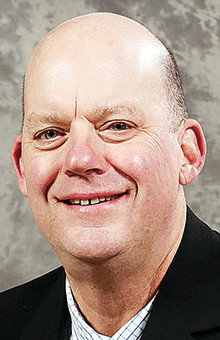Support the Timberjay by making a donation.
Commissioners delay on refugee resettlement
Vote 4-3 to table decision until May
DULUTH— The St. Louis County Board, on Tuesday, tabled action on a proposal to allow refugee resettlement after a flood of opposition, mostly from residents in rural parts of the county. The …
This item is available in full to subscribers.
Attention subscribers
To continue reading, you will need to either log in to your subscriber account, or purchase a new subscription.
If you are a current print subscriber, you can set up a free website account and connect your subscription to it by clicking here.
If you are a digital subscriber with an active, online-only subscription then you already have an account here. Just reset your password if you've not yet logged in to your account on this new site.
Otherwise, click here to view your options for subscribing.
Please log in to continue |
Commissioners delay on refugee resettlement
Vote 4-3 to table decision until May
DULUTH— The St. Louis County Board, on Tuesday, tabled action on a proposal to allow refugee resettlement after a flood of opposition, mostly from residents in rural parts of the county. The decision came on a 4-3 vote that divided Duluth area commissioners from those representing more rural parts of the county. It came after three hours of public testimony that was largely in favor of the proposal.
Fourth District Commissioner Paul McDonald voted along with his northern commissioners in supporting Commissioner Keith Nelson’s motion to table. The county board is expected to take up the issue once again at a board meeting set for May 26 in Buhl, just five days before a deadline set for approving possible resettlement. McDonald said he wanted more time to explain the proposal to his constituents. “We have taken over 200 phone calls in opposition at our office,” said McDonald, “not to mention the emails.”
McDonald said it’s important for county residents to recognize that “nothing has changed” and there’s no reason to expect any refugees will be resettled in the county any time soon. “We’ve had no refugee resettled in the county since 2011,” he said.
According to McDonald, longstanding rules in place for refugee resettlement require the presence of a resettlement agency within 50 miles of the new residence of a refugee. McDonald noted that the closest such agency is currently in the Twin Cities, which all but eliminates the possibility of refugee resettlement in the county.
As such, the proposal to allow resettlement was largely symbolic, and was made in response to a recent executive order by President Trump that requires states and counties across the country to approve resettlement in order for any new refugees to be relocated within their borders. Many critics of the plan see it as an electoral strategy for President Trump, designed to stir up anti-refugee sentiment to turn out votes for Trump in November.
“I think that we’re following Trump’s agenda to divide communities, to divide counties, to divide states, and divide the country,” said Orlyn Kringstad, Tower’s mayor, who spoke as a citizen during public input at Tuesday’s meeting. Kringstad said he has a long history of working with refugees during his prior career in the nonprofit sector and found the experience to be “99-percent positive.”
“Many refugees are highly entrepreneurial, and typically create jobs rather than cost jobs,” said Kringstad, who added that he was extremely disappointed in the board’s decision.
Others found irony in the timing of the vote, coming one year to the day after the death of longtime state representative and former St. Louis County Commissioner Tom Rukavina, who was outspoken in support of refugees. Shortly before his death, Rukavina penned a letter to the editor of the Timberjay that lauded the care that he received from recent refugees who cared for him as he battled a rare form of leukemia at the University of Minnesota Medical Center. More than one person made reference to Rukavina’s final political testament during comments to the board.
“It just showed how far apart people are with their understanding of the situation that refugees are in,” said Leah Rogne, a resident of Greaney who attended the board meeting to express her support for keeping the county open to refugees, as has long been the case. “These are some of the most vulnerable people in the world, some of the most highly-vetted people in the world, and often some of the best educated and ambitious people in the world. It struck me how afraid some people are, and their fear seems to trump all.”
McDonald said most of those who called his office were asking for more time to understand what the proposal actually involves. “That’s why I welcome the chance to talk about this,” he said. “We just need time to get the correct message out there. This just gives us some time to educate the constituency.”
The state of Minnesota has already indicated a willingness to continue to accept refugees, who are defined as individuals proven to be fleeing war or other forms of violence, famine, or natural disasters. The vast majority of refugees have been resettled in the Twin Cities metro region in recent decades, where resettlement organizations, often affiliated with religious institutions, are available to assist them.







